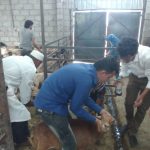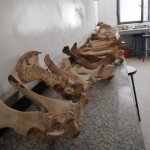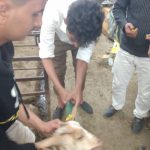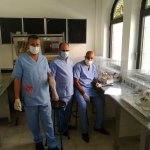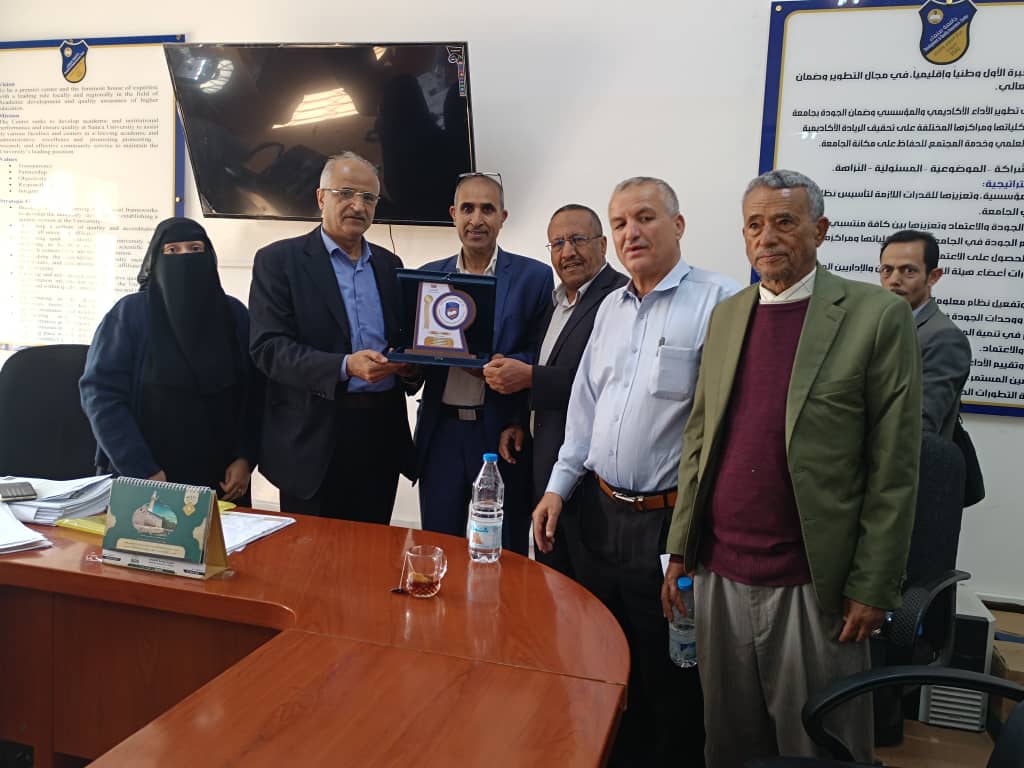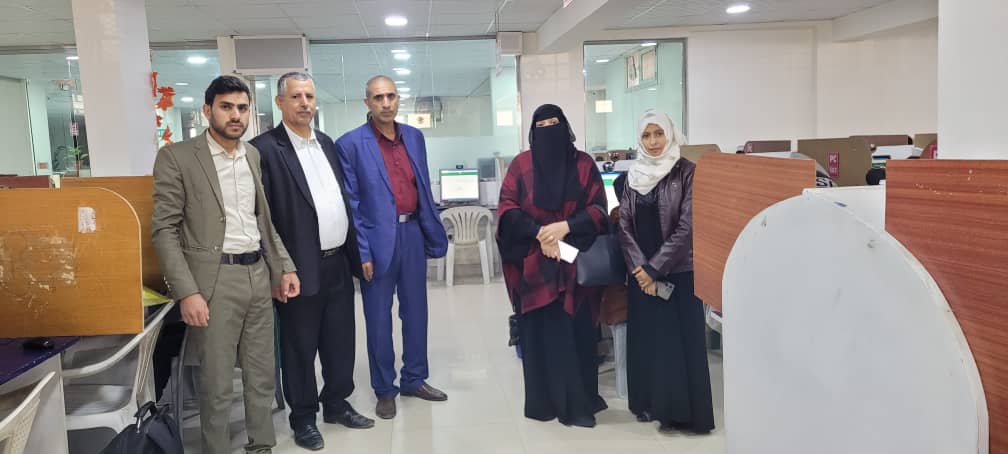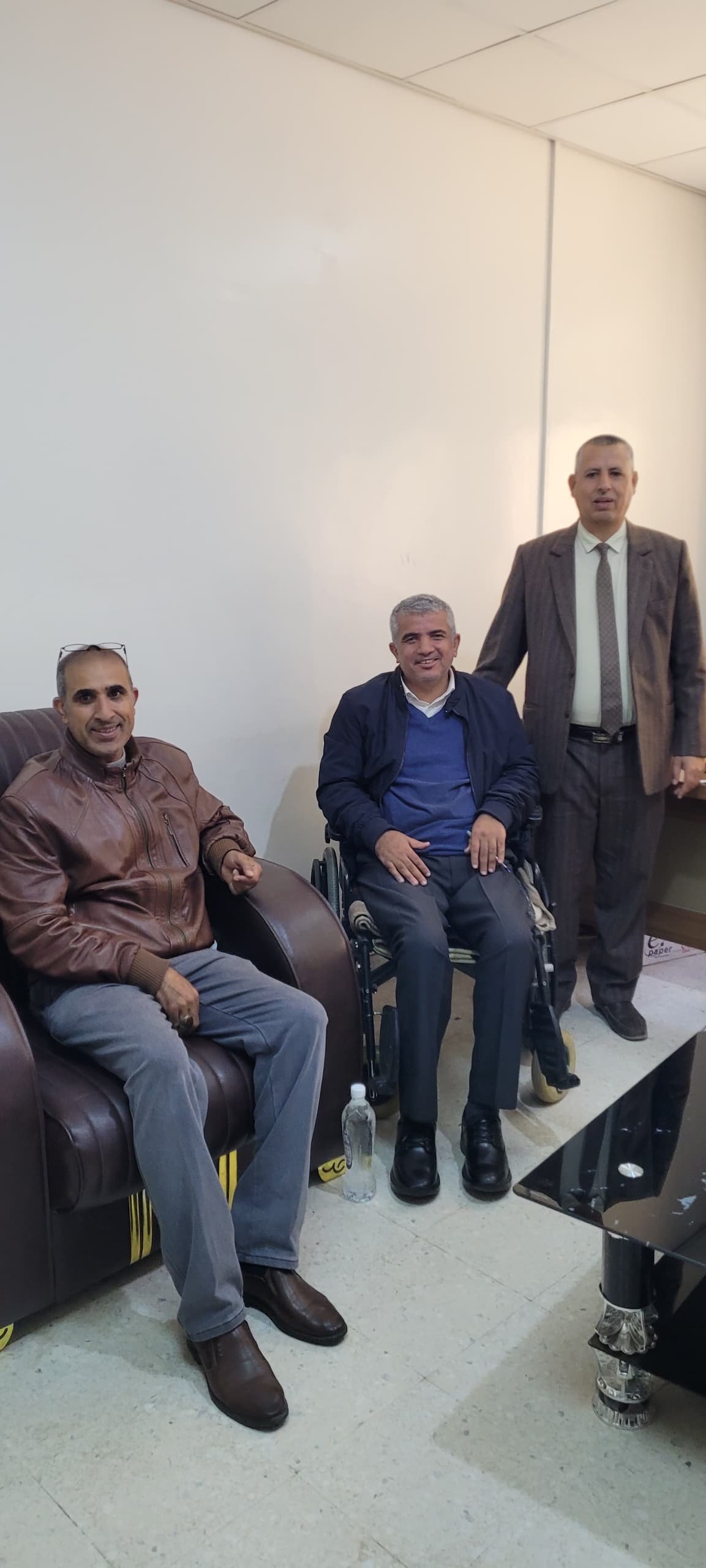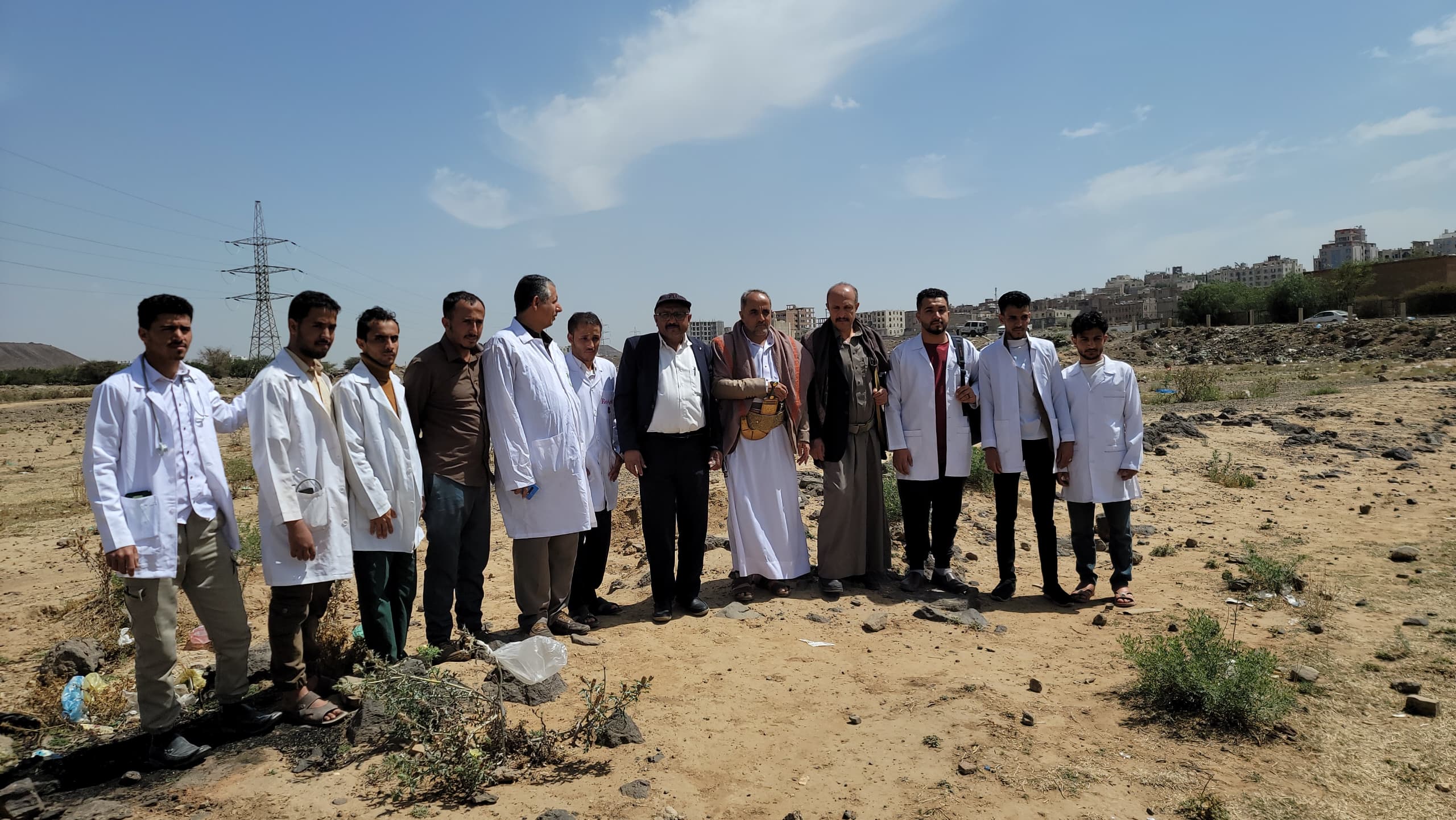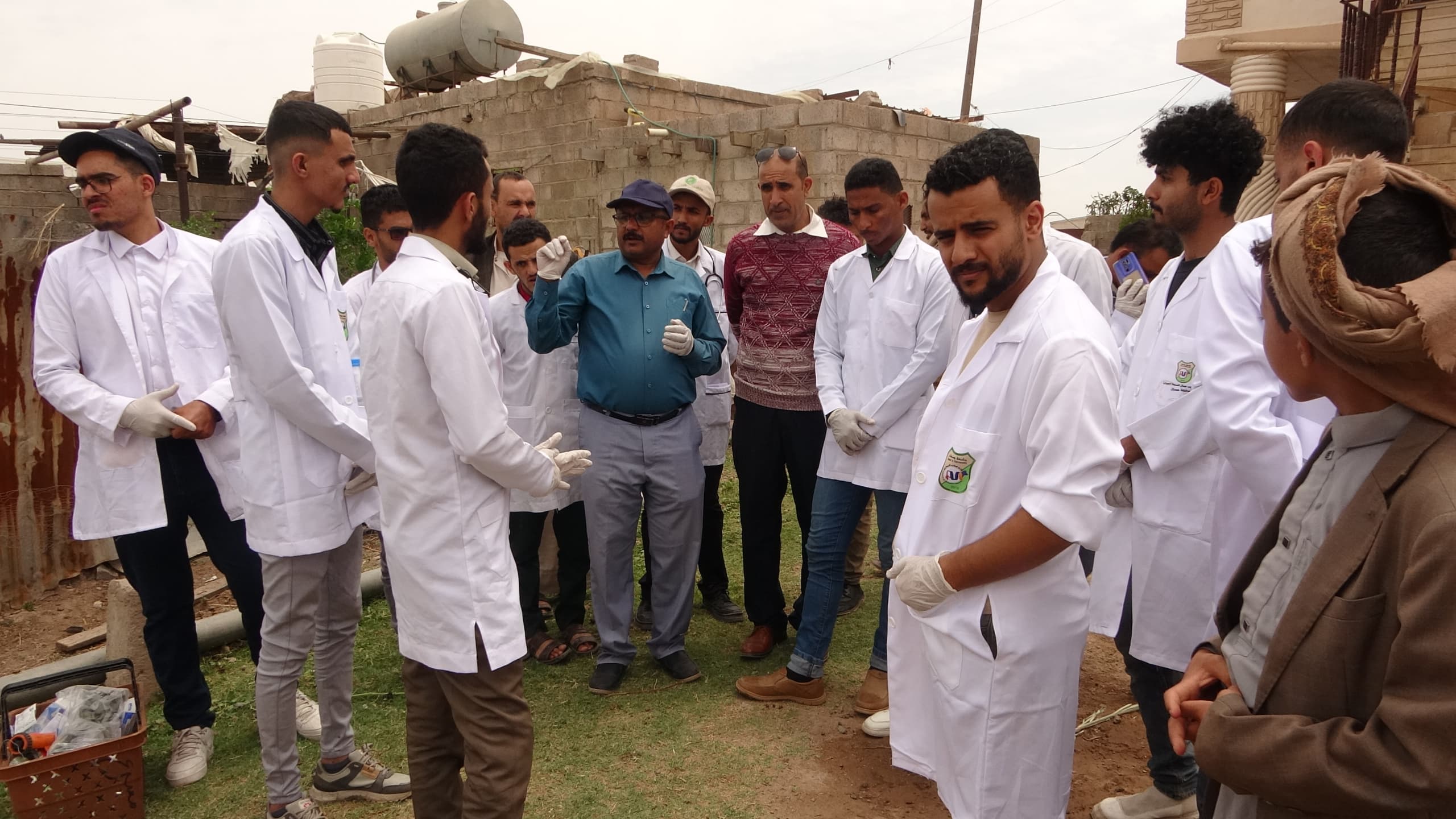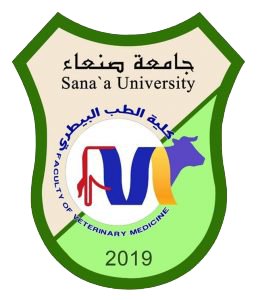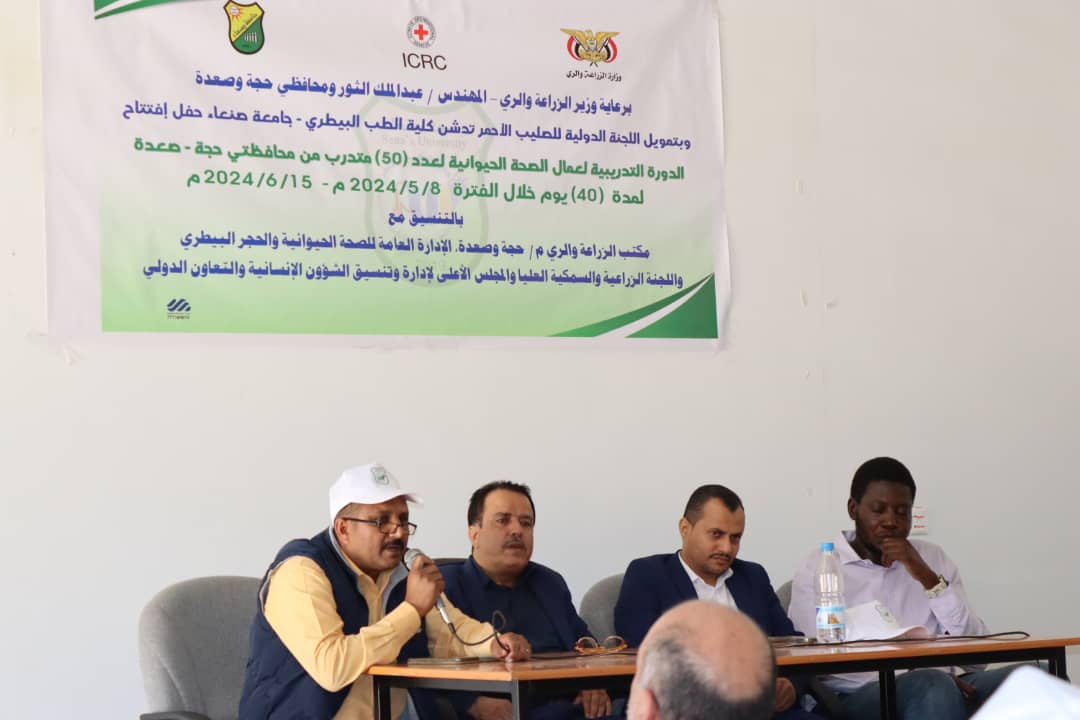
The Faculty aspires to achieve local leadership and regional excellence in the field of veterinary sciences.

The Faculty seeks to prepare specialized cadres in veterinary medicine – capable to meet the community needs and compete locally and regionally – by offering an educational, training, technical, and research environment; specialized teaching staff; and modern curricula that take into account the balance between knowledge and skill-based dimensions in accordance with the latest recognized standards.
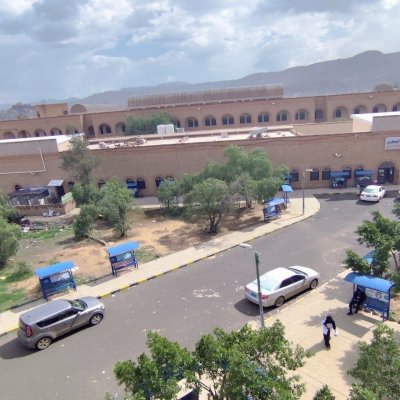
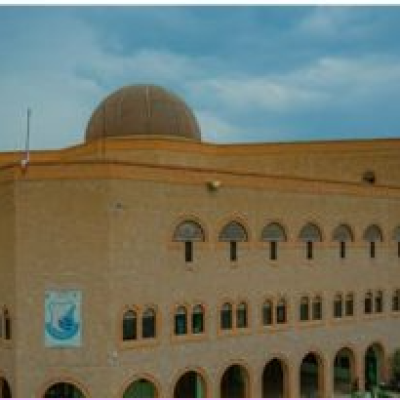
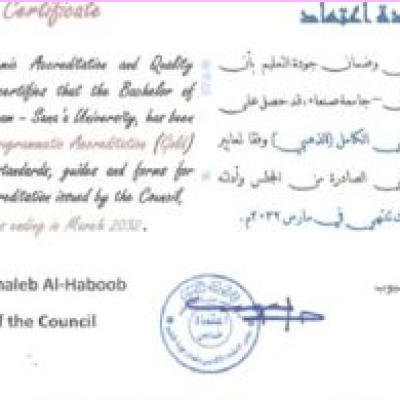
About the Faculty
Faculty of Veterinary Medicine


The Faculty in Brief
Unlike other universities in Yemen, where veterinary medicine is incorporated into the Faculty of Agriculture, the Faculty of Veterinary Medicine (FVM) at Sana’a University is an independent faculty. The university has shown a keen interest in this field since its establishment in 1970. This reflects the university leadership’s commitment to establishing new faculties that align with various development paths. FVM plays a crucial role in promoting the sustainable development of the livestock sector, which is vital for food security and the self-sufficiency of animal products, including meat, dairy, eggs, and fisheries. FVM offers a five-year Bachelor Program in Veterinary Medicine, consisting of 10 semesters. During this program, students are required to complete 65 courses, totaling 195 academic credit hours.
Dean's message
It gives me great pleasure to welcome you to the website of the Faculty of Veterinary Medicine at Sana’a University, which was newly established in 2019 as a qualitative addition to the university’s academic and research system. The establishment of the faculty comes in response to the need to qualify veterinary professionals capable of meeting community needs, safeguarding animal health and safety, and enhancing food security and the national economy in our country.
Since its inception, the Faculty of Veterinary Medicine has worked diligently to build an integrated educational system based on high-quality curricula, a competent academic staff, and the provision of a modern scientific and training environment that keeps pace with recent developments in the field of veterinary medicine. This aims to prepare highly qualified graduates who are capable of contributing effectively to the development of the livestock sector and serving the community.
Within the framework of strengthening the faculty’s role in community service, we place great importance on expanding partnerships and cooperation with relevant institutions in both the public and private sectors. This contributes to the development of students’ practical skills, enhances integration between the academic and professional aspects, and supports joint efforts to confront health and epidemic challenges and improve the quality of veterinary services.
The faculty also seeks to enhance its role in scientific research through research projects directed toward improving animal health, combating epidemic diseases, and supporting safe animal production practices, in a manner that serves sustainable development and ensures the safety of animal products.
In conclusion, we reaffirm our commitment to continuous development and the advancement of academic and research performance, so that the Faculty of Veterinary Medicine at Sana’a University remains a scientific beacon contributing to scientific progress and community service.
We ask Allah for success and guidance. Peace, mercy, and blessings of Allah be upon you.
Yemen is the cradle of civilizations and urbanization, of which agriculture has been the main pillar. The Yemeni man built dams and water reservoirs since ancient times to secure stability and survival. Twinned with agriculture, Yemenis have been interested in raising, taking care of and using livestock to secure their needs of food, clothing and fieldwork. Animal husbandry has been associated with caring for veterinary health, and sick animals, so Yemenis used herbs from the local environment for these purposes. Throughout the Yemeni civilization, the Yemeni farmer has developed great agricultural experience in both botany and veterinary parts.
Yemen has been subjected to fierce attacks and invasions throughout its history, and the Yemenis’ dependence on agriculture to secure their needs was the strongest factor that helped them resist invaders and occupiers. History always repeats itself! The current Saudi, UAE and American aggression against Yemeni land and people is another attempt to destroy all the life-support elements in Yemen, especially agriculture, which has been proved to be the main pillar of steadfastness and resistance. such a brutal aggression has targeted everything that could have a role in the resistance and steadfastness of Yemenis. Livestock has been targeted and destroyed in several ways, including the direct bombing and the blockage of animal feed and fuel necessary for such an important sector.
Veterinarians, today, are responsible for the health of both humans and animals altogether. They are also responsible for the safe production of animal products that includes the production of safe food, free of pathogens and residual effect of medicines and antibiotics. Therefore, the community health depends on the qualified veterinary cadre, who must be able to carry out their responsibility of protecting society from diseases and ensuring the health and safety of food. Preserving and breeding livestock is dependent on the successful monitoring and controlling of epidemics and/or diseases among animals, in order to secure adequate food for the whole community. All these responsibilities are shouldered by veterinarians, who shall be qualified very well during their university study in order to successfully shoulder the previously mentioned responsibilities.
Shortage of veterinary cadres in Yemen in terms of quantity and quality comes as a result of marginalizing and degrading of the veterinary profession by the previous regimes, which led to students’ reluctance to join this major. However, Mr. Abdulmalik Badruddin Al-Houthi has devoted substantial parts of his Ramadan speeches to stress on the importance of this major and the necessity of encouraging students to enroll in this scientific program. In translation of his keen directives, the Faculty of Veterinary Medicine has been inaugurated by Sana’a University in October 2019, as the first independent faculty of veterinary medicine in Yemen. It aims to contribute to supplying the local and regional markets with qualified veterinary cadres who are able to assume their responsibilities in the husbandry and protection of livestock, in addition to ensuring the safety of animal products throughout Yemen.
We ask Allah, the Almighty, to provide us with help and success to serve our society and ensure its health and safety.
Dean of the Faculty of Veterinary Medicine
Dr. Abduraqeb Alshami
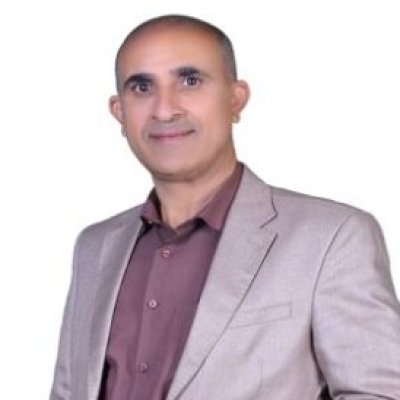
Latest News
Faculty of Veterinary Medicine
Faculty and Community
Faculty of Veterinary Medicine
